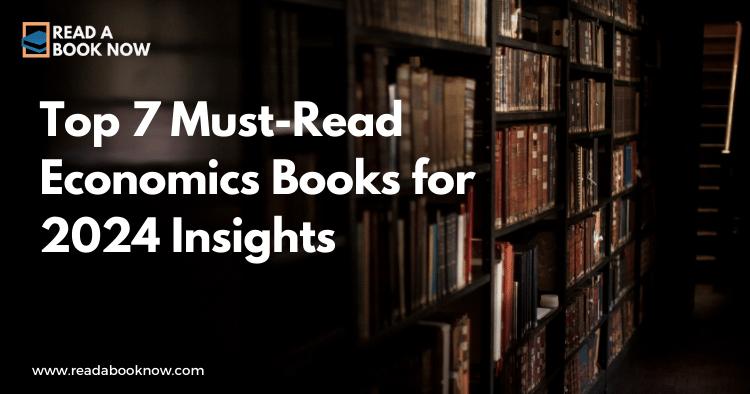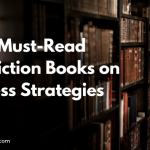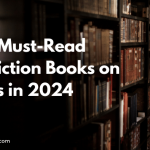Table of Contents
- Introduction
- 1. “Capital in the Twenty-First Century” by Thomas Piketty
- 2. “Freakonomics” by Steven D. Levitt and Stephen J. Dubner
- 3. “The Wealth of Nations” by Adam Smith
- 4. “Misbehaving: The Making of Behavioral Economics” by Richard H. Thaler
- 5. “The Price of Inequality” by Joseph E. Stiglitz
- 6. “Good Economics for Hard Times” by Abhijit V. Banerjee and Esther Duflo
- 7. “The Deficit Myth” by Stephanie Kelton
- Conclusion
- FAQs
Introduction
Welcome to our exploration of the top seven must-read economics books for 2024! Whether you’re a seasoned economist or just someone curious about how economic principles shape our world, these books offer valuable insights into the complex world of economics. From discussions on inequality to behavioral economics, we’ve compiled a diverse list that caters to different interests and perspectives. Grab a cup of coffee, and let’s dive in!
1. Capital in the Twenty-First Century by Thomas Piketty
Thomas Piketty’s groundbreaking work, “Capital in the Twenty-First Century,” continues to be relevant in 2024. This book examines wealth and income inequality through a historical lens, analyzing data from over 20 countries.
Key Insights:
- Inequality Trends: Piketty discusses how the concentration of wealth has increased since the 1970s.
- Return on Capital: He argues that the return on capital has outpaced economic growth, leading to greater inequality.
Visual Element:
| Year | Top 1% Wealth Share | Economic Growth |
|---|---|---|
| 1970 | 20% | 3% |
| 2020 | 40% | 2% |
For further exploration of Piketty’s theories, check out The Economist’s Review.
2. Freakonomics by Steven D. Levitt and Stephen J. Dubner
“Freakonomics” challenges conventional economic thinking by applying economic theories to diverse real-world issues. Levitt and Dubner ask provocative questions that uncover surprising truths about incentives and human behavior.
Key Insights:
- Incentives Matter: The authors explore how incentives drive human behavior, affecting everything from crime rates to school performance.
- Unexpected Correlations: The book highlights unusual correlations, such as the relationship between legalized abortion and reduced crime rates.
For more on how these principles apply today, visit Freakonomics’ Official Site.
3. The Wealth of Nations by Adam Smith
Considered the foundation of modern economics, Adam Smith’s “The Wealth of Nations” remains a crucial read. Originally published in 1776, its principles still resonate in today’s economic discussions.
Key Insights:
- Invisible Hand: Smith introduces the concept of the ‘invisible hand,’ suggesting that individuals’ self-interest inadvertently benefits society.
- Division of Labor: He highlights how specialization and division of labor increase productivity.
Why Read It in 2024?
Understanding Smith’s principles can help contextualize contemporary economic debates about free markets and regulation.
For a deeper dive, check out The Stanford Encyclopedia of Philosophy.
4. Misbehaving: The Making of Behavioral Economics by Richard H. Thaler
Richard H. Thaler’s “Misbehaving” dives into the world of behavioral economics, illustrating how psychological factors impact economic decisions.
Key Insights:
- Behavioral Anomalies: Thaler discusses how people often act irrationally, deviating from traditional economic models.
- Nudges: He introduces the concept of ‘nudging’—subtle changes in the environment that can significantly affect behavior.
Visual Element:
| Behavioral Bias | Description | Impact on Decision Making |
|---|---|---|
| Anchoring | Relying heavily on the first piece of information | Can skew perception of value |
| Loss Aversion | Preference to avoid losses over acquiring equivalent gains | Can lead to risk-averse behavior |
For more insights into behavioral economics, visit Nobel Prize’s Official Page.
5. The Price of Inequality by Joseph E. Stiglitz
Nobel laureate Joseph Stiglitz presents a compelling argument against rising inequality in “The Price of Inequality.” He explores how economic disparity undermines democracy and economic growth.
Key Insights:
- Inequality and Growth: Stiglitz argues that high inequality leads to lower overall economic growth.
- Policy Recommendations: He proposes various policies aimed at reducing inequality, including better taxation and improved access to education.
For a thorough examination of his arguments, you can read more at The Guardian’s Review.
6. Good Economics for Hard Times by Abhijit V. Banerjee and Esther Duflo
Nobel Prize winners Abhijit V. Banerjee and Esther Duflo tackle pressing economic challenges in “Good Economics for Hard Times.” The authors provide evidence-based solutions to complex problems such as globalization and inequality.
Key Insights:
- Empirical Evidence: The book emphasizes using data and experiments to shape economic policy.
- Globalization: Banerjee and Duflo discuss the dual nature of globalization, highlighting both its benefits and drawbacks.
For more information on their work, check out MIT’s Economic Development Lab.
7. The Deficit Myth by Stephanie Kelton
In “The Deficit Myth,” Stephanie Kelton challenges conventional views on government spending and fiscal policy. She introduces Modern Monetary Theory (MMT) and argues that deficits are not inherently bad.
Key Insights:
- Redefining Deficits: Kelton posits that governments can and should use deficits to promote economic growth and social welfare.
- Public Investment: She advocates for increased public investment in areas like infrastructure and education as a means to drive growth.
For further reading on MMT, visit The Balance’s Overview.
Conclusion
As we step into 2024, these seven economics books provide essential insights into the pressing issues of our time. Whether it’s understanding inequality, exploring behavioral economics, or redefining fiscal policy, each book offers a unique perspective that can enrich your understanding of economics. Happy reading!
FAQs
Q: Where can I find these books?
A: You can purchase these books from major retailers like Amazon or your local bookstore.
Q: Are these books suitable for beginners?
A: Yes! While some may have complex theories, they are written in an accessible manner that beginners can understand.
Q: How can I apply these insights in real life?
A: Understanding these concepts can help you make informed decisions in your personal finances, voting, and policy advocacy.
Q: Do I need a background in economics to understand these books?
A: No prior knowledge is required! These authors take care to explain concepts clearly for readers of all backgrounds.
Feel free to share your thoughts or favorite economics books in the comments below!
Also Look For
If you’re interested in how literature intersects with economics, consider exploring classic literature that delves into economic themes. For instance, works discussed in 10 Must-Read Victorian Literature Classics You Can’t Miss can provide a historical context on societal structures and economic conditions of the time.




